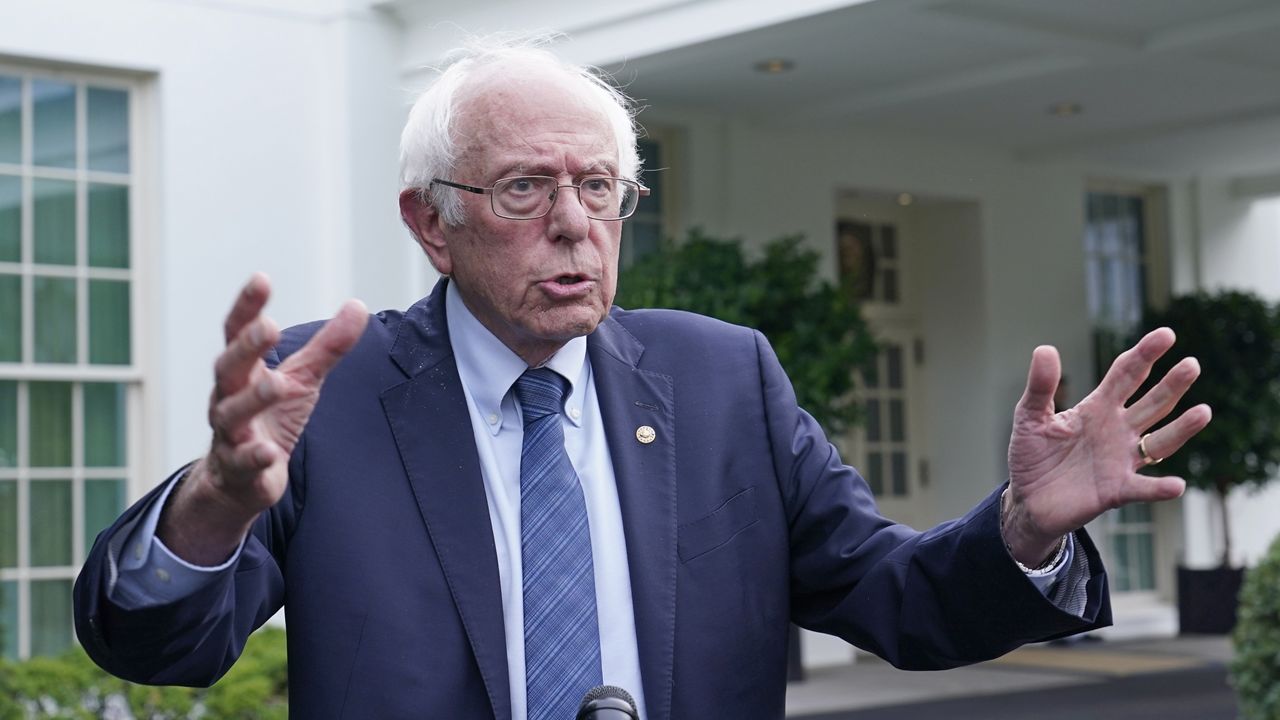Marking a significant escalation of his criticism of Israel’s handling of its war against Hamas, Sen. Bernie Sanders, I-Vt., urged Congress to block more than $10 billion in proposed aid to Israel.
Sanders’ new call to outright reject the funding – rather than put conditions on it, as he previously called for – further highlights the tensions within the Democratic party that have been boiling for weeks over Israel’s response to Hamas’ Oct. 7 attack in which the militant group that governs the Gaza Strip killed about 1,200 Israelis.
It comes just days after the Biden administration made an emergency determination, allowing it to bypass review by Congress, for a $147.5 million weapons sale to Israel.
In a statement on Tuesday, Sanders argued U.S. taxpayers “must no longer be complicit in destroying the lives of innocent men, women, and children in Gaza,” calling the conflict “Netanyahu’s Illegal and Immoral War Against the Palestinian People.”
“The issue we face with Israel-Gaza is not complicated,” Sanders wrote. “While we recognize that Hamas’ barbaric terrorist attack began this war, we must also recognize that Israel’s military response has been grossly disproportionate, immoral, and in violation of international law.”
Officials in President Joe Biden's administration have repeatedly declined to make an assessment as to whether Israel is violating international law with its military operations in Gaza, often saying they are not going to “adjudicate each and every tactical event.”
But the Democratic president is facing growing skepticism at home and abroad over his backing of Israel as the civilian death toll in Gaza rises.
Biden recently has urged Israel to “be more careful” with its operations in the Palestinian territory but has not called for a full cease-fire, sparking protests by some at home and putting the U.S. at odds with allies overseas.
The Hamas-run health ministry says more than 20,000 Palestinian civilians have been killed since the war began.
In his statement, Sanders cited the civilian death toll as well as the humanitarian crisis in Gaza, including the number of Palestinians at risk of starvation, to make his case that the U.S. should not send Israel the $10 billion proposed as part of President Biden’s $106 billion national security funding request.
In a display of the divides within the Democratic party on the developments in the war and the White House’s response, in an interview with CNN on Tuesday night, Rep. Jared Moskowitz, D-Fla., cast Sanders’ latest move as part of a “dangerous conversation.” Sanders is an independent who caucuses with Democrats and ran for president twice seeking the Democratic nomination.
“That is going to send the wrong message. I mean what kind of message do you think Iran is picking up right now watching Bernie Sanders talking about conditioning aid to Israel,” Moskowitz said. “So this is a very dangerous conversation.”
The Florida Democrat argued conditioning aid to Israel would start a “conditioning battle” that would make it more difficult to send humanitarian aid to Palestinian people.
Moskowitz also called Sanders “misguided” for specifically citing Israeli Prime Minister Benjamin Netanyahu and his “right-wing government” in his statement.
“We don’t support a country or its people based on a leader,” Moskowitz said.
The latest move by Sanders also adds another headwind to Biden’s request for billions of dollars in foreign aid and the border, which is already on shaky ground amid GOP reluctance to give more aid to Ukraine and the insistence it must be coupled with border policy changes.
The more than $100 billion supplemental request includes aid for Ukraine amid Russia’s invasion, Israel as it battles Hamas, the Indo-Pacific as China exerts its influence in the region and the U.S.-Mexico border. The funding request has been sitting in limbo on Capitol Hill as a group of bipartisan senators try to work out an agreement on border policy changes that have become key to unlocking the funds.



